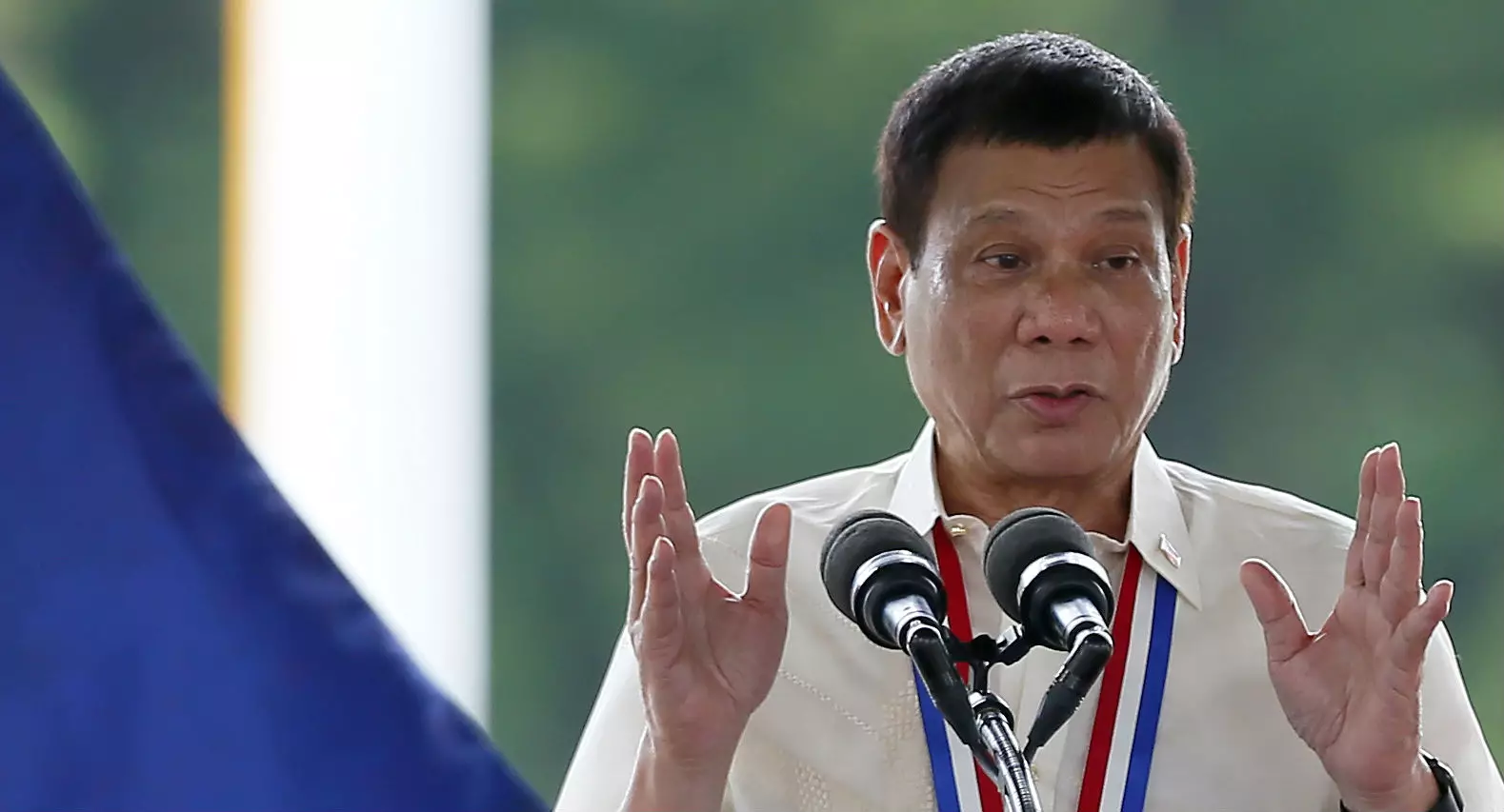
2016 will probably go down as one of the most unpredictable years in recent political history, with Donald Trump, Brexit and the ongoing catastrophe in Syria taking top billing. With attention focused elsewhere, a political earthquake took place in South East Asia that could be considered right up there with The Donald, Nigel Farage and their ilk.
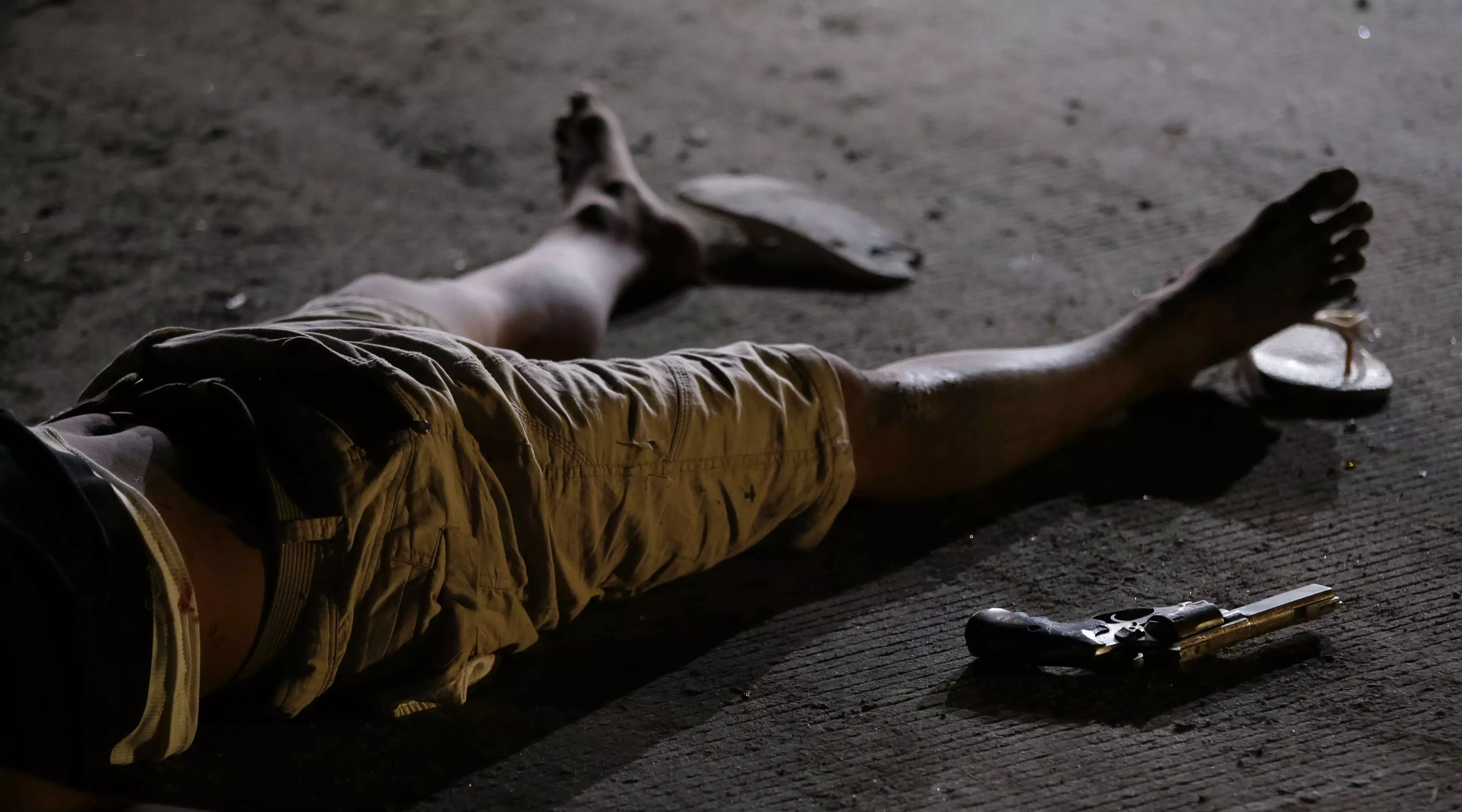
An alleged drug suspect lies on the ground beside a gun; Credit: PA Images
Advert
The earthquake in question is the election of Rodrigo Duterte: a self-declared hardliner, a populist strongman and - as he is often presented in the Western media - the Filipino Trump. While Trump is getting his feet under the Oval Office table, Duterte has had six months to work on some of the outlandish and inflammatory promises that he made during his election campaign, and has actually been able to back up many of the most radical - with devastating human consequences.
On the campaign trail, Duterte claimed that his presidency would 'be a bloody one'. Politicians are often accused of backtracking on their election promises, but President Duterte is certainly not one of those. Since he took office in July 2016, there have been a reported 6,000 extrajudicial killings, roughly a third by the police and two-thirds by armed vigilantes, as part of the president's tough law and order tactics. Given that he also offered to pardon any police officers or soldiers - not to mention pardoning himself - accused of human rights abuses, it isn't difficult to find the source of the cops' enthusiasm. Duterte himself openly admits to having killed suspects in his previous role as mayor of Davao City.
The catalyst for this bloodshed has been Duterte's commitment to breaking the Philippines' drug problem. There are an estimated 1.7 million drug addicts in the country. Duterte himself put the number as high as four million, although the official national statistics disagree - and the vast majority are addicted to shabu, the local form of crystal meth. You'll be surprised to hear that most of those addicts are poor, with many of them taking the drug in order to work longer hours, particularly as taxi or pedicab drivers and casual labourers. Some also claim to take the drug to suppress appetite, so their families can eat when there is not enough to go around.
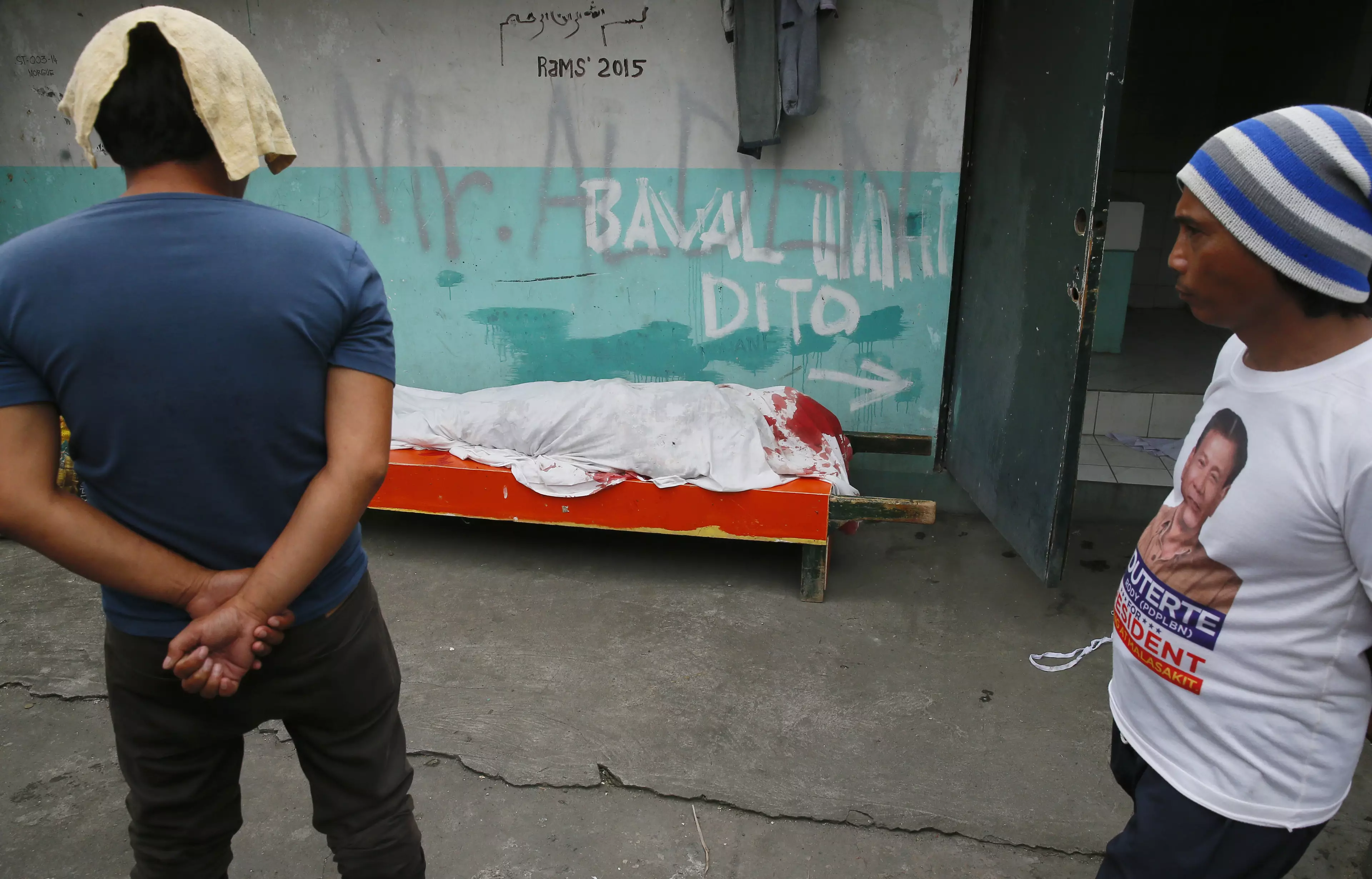
A victim of the regime; Credit PA Images
Advert
"Even top anti-narcotics officials in the Philippines admit that data the president uses to justify his battle against drugs is exaggerated," says Christina Ferraris, speaking to TheLADbible from Iloilo City in the Philippines. "But the fact is, there remains to be a problem and the campaign [against drugs] has focused attention on a long-neglected crisis."
The end for many of these users is brutal. While many have been killed by the police, the majority are the victims of vigilante death squads, who execute people in the street, usually via motorcycle drive-by shootings. A bike pulls up, a gun is fired and the shooter rides away. The police arrive, but the culprits are almost never found, if sought at all. Duterte has openly encouraged and praised vigilantism and it isn't hard to see why his ambivalence towards it has led to many within law enforcement failing to investigate killings.
Credit: AJ+
Advert
Alongside the vigilante killings, the police themselves are widely considered to be behind many of the deaths. Raids on prisons, suspected drug dens and poor neighbourhoods are common, and often end in violence. Many of those killed have been found with their hands cuffed, but almost all police reports give the reason for opening fire as self-defence.
"It's amazing how many suspects, including those with their hands cuffed behind their backs, supposedly fight back and even try to grab the guns of arresting officers," said Ana Marie Pamintuan in the Philippines Star.
Shabu users have been encouraged to come forward to police in order to get help. More than 700,000 addicts have done so, only to be met by the typically Duterte response of 'I can't kill them all' when the president was questioned regarding his plans for those needing treatment. Medical assistance for users is almost non-existent as a result, especially as they tend to come from the lowest echelons of society.
Many more are scared to ask for help as they feel identifying themselves marks them as potential targets for vigilantes. Police are liable to arrest users, too, and conditions in the prisons are dire, with huge overcrowding and poor sanitary conditions the norm. Alongside the killings, there have been 40,000 drug arrests in the short time President Duterte has been in office.
Arguably the strangest thing about Duterte's short reign at the top of Filipino politics is that these killings appear to have had no ill-effect whatsoever on his personal approval rating, which remains north of 80 per cent. Sean Williams, an IB Times journalist recently returned from Manila, told us about the public approval of the new president.
"When I was there people blamed the police, drug lords and other politicians [for the violence]," he said. "Few held out much ire for Duterte, who it seems has been able to divest responsibility for the most specious acts during all this violence."
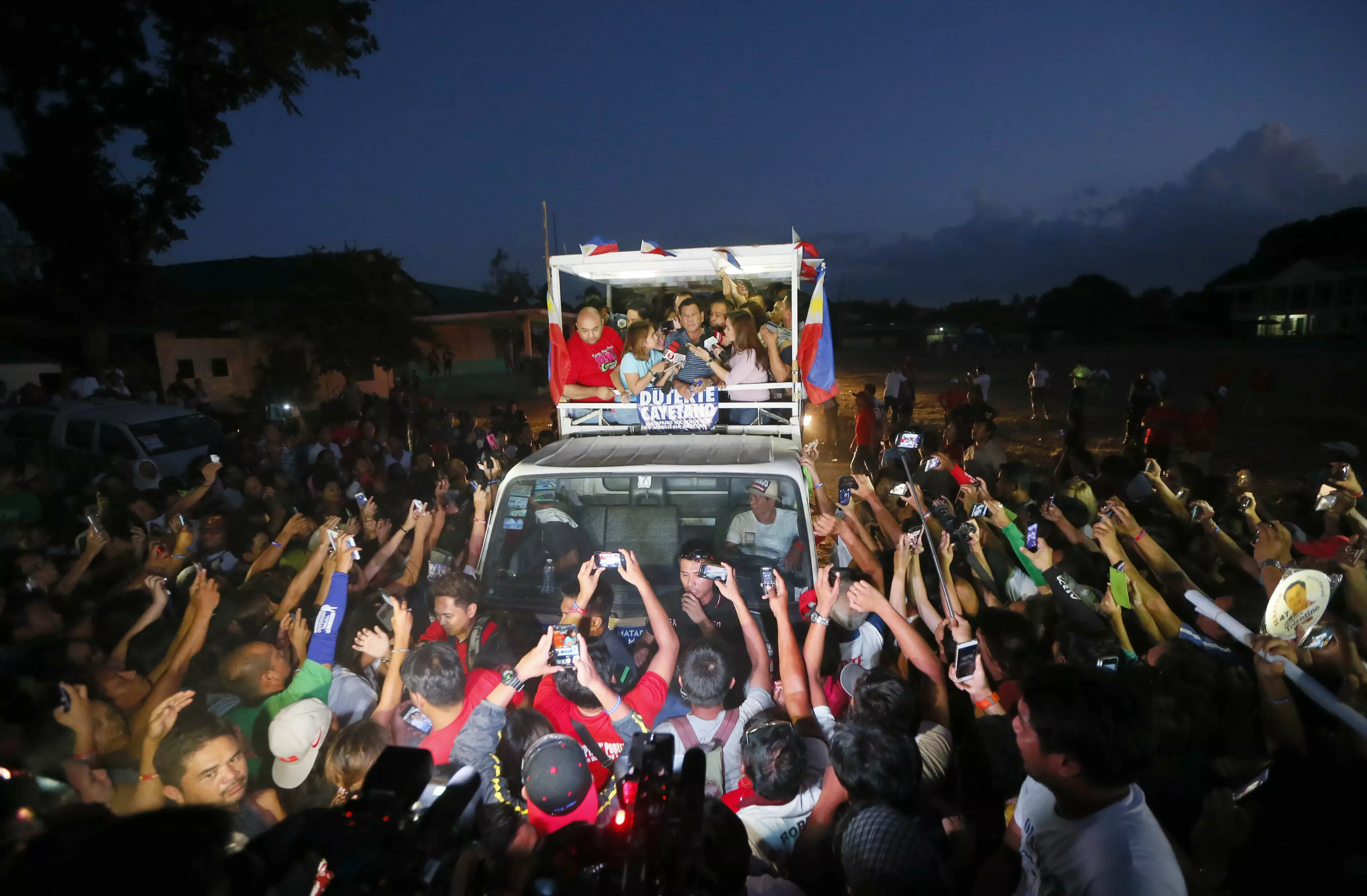
Duterte remains popular with the public; Credit PA Images
Advert
The manner in which Duterte has been able to set the media narrative around drugs in his campaign, and then follow through on the promises that he made, has been consistent if nothing else. Duterte was already known for his style, and this was a reputation built over 22 years as a city mayor.
According to Christina Ferraris: "Never mind his brash and tough-talk; his reputation as the man responsible for bringing peace and order to Davao City precedes him." Sean Williams added that while Duterte was in charge of Davao, "...he's also been accused of running death squads and extrajudicial killings." In short, Filipinos were well aware of what they were voting for when they chose Duterte, and it isn't surprising that he has been similarly brutal in higher office.
A key element in Duterte's reign - and his seemingly impervious public approval rating - has been his dominance of social media and the unique way in which young, urban poor Filipinos consume news.
Sean Williams explained: "Almost every Filipino has access to Facebook, for example, and the median age is just 23 years - but few have the data to click through on articles, or read partisan news critically. So pro-Duterte and pro-drug war propaganda and headlines are often consumed as fact."
Advert
The backlash from Duterte's supporters on social media has often been swift and brutal, with journalists who criticise the president receiving extensive abuse online.
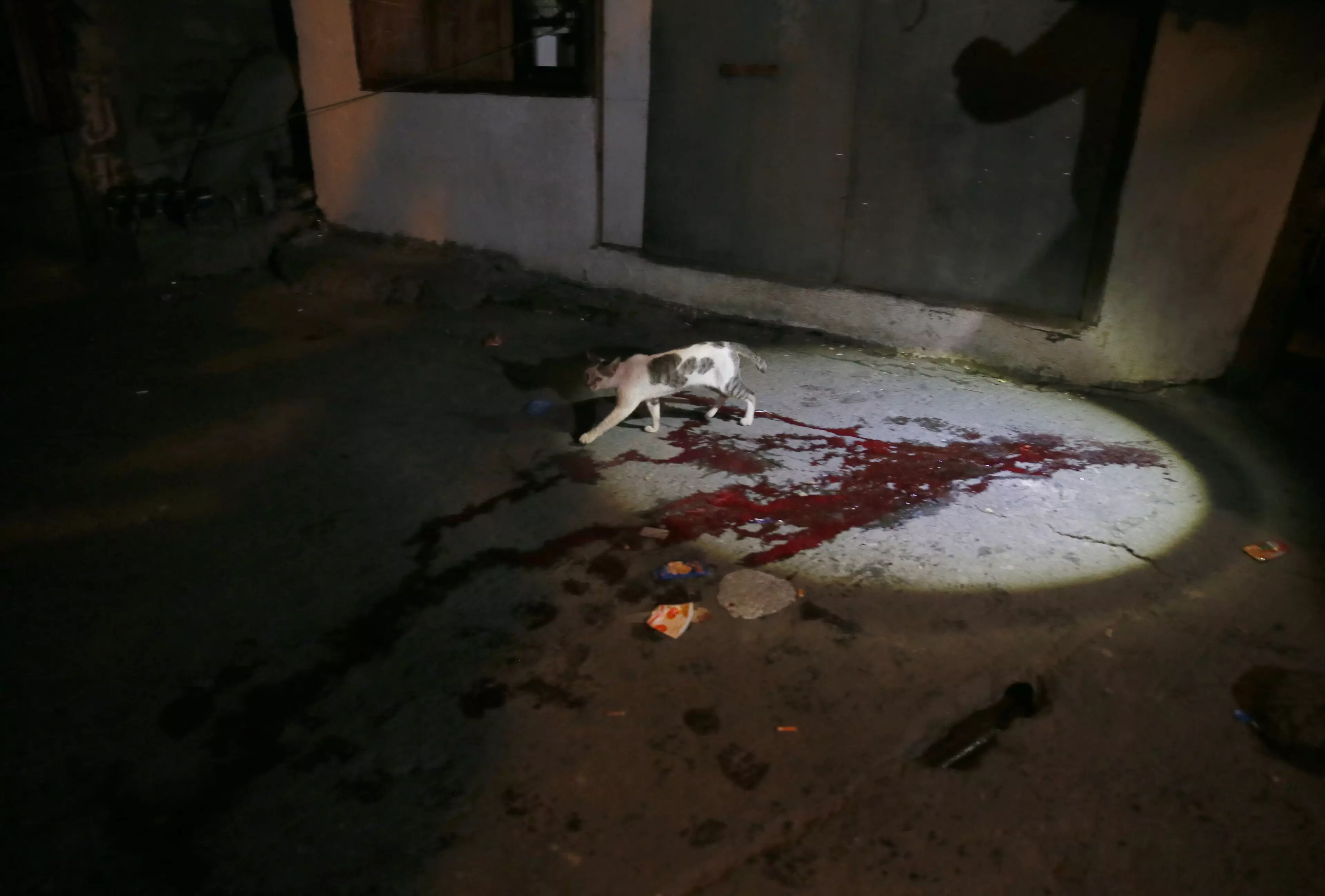
A pool of blood remains from an alleged drug criminal; Credit: PA Images
What the future of the Philippines looks like is largely dependent on whether or not Duterte continues his war on drugs. Sean Williams doubts the value of the campaign, as he said: "Very few high-level operators have been stung by the drug war. That should be pretty telling in itself. This is a war on the poor as much as drugs."
President Duterte shows no sign of slowing down at all. In fact, he recently threatened to impose martial law to combat drugs - and his determination remains unwavering. As he recently told an Al-Jazeera documentary crew: "I am not a statesman. I do not aspire to be one. I would just like to be an ordinary president who can fuck you if you fuck with me."
If this attitude continues, it seems certain that more human rights abuses and bloodshed will follow.
Featured Image Credit: PA Images